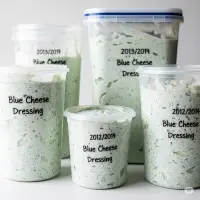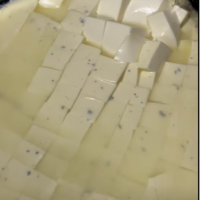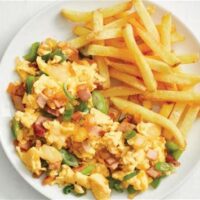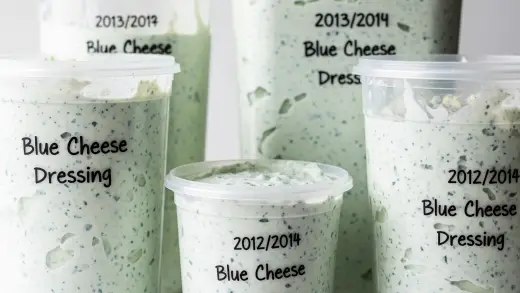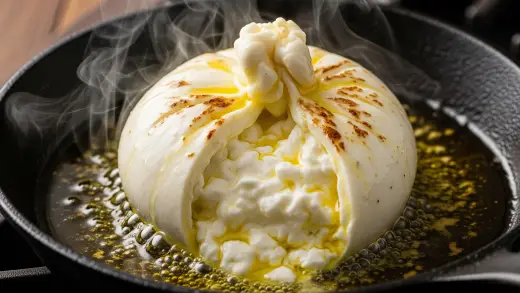Babybel cheese is a type of real cheese that is made from pasteurized milk using traditional Edam-making processes. The cheese is produced by Bel Brands Cheese USA, a subsidiary of Bel Group, in a milk receiving facility in Kentucky, United States.
While the cheese is of Dutch origin, it is now made in various locations around the world, including the United States. Babybel cheese is a popular snack for both children and adults and comes in a variety of flavors. The cheese is encased in a red wax coating that is safe for consumption and helps to preserve the cheese.
Babybel cheese is a healthy snack option and is naturally lactose-free.
The Birthplace Of Babybel Cheese
Babybel cheese, the iconic red-wrapped snack, has a rich history rooted in the picturesque landscapes of Western France. Let’s explore the captivating journey of this beloved cheese and its origins.
Western France: The Cradle Of A Cheese Classic
Western France, particularly the region of Brittany, is renowned for its lush green pastures and rich dairy heritage. It is within this idyllic setting that the story of Babybel cheese begins. The traditional cheese-making practices and the exceptional quality of the milk sourced from this region play a pivotal role in shaping the distinctive flavor and texture of Babybel cheese.
Jules Bel And The Edam Connection
The inception of Babybel cheese can be attributed to Jules Bel, a visionary cheesemaker who drew inspiration from the renowned Edam cheese of the Netherlands. Building upon the legacy of Edam, Jules Bel crafted a unique recipe that would later become the hallmark of Babybel cheese. The influence of Edam is evident in the smooth, creamy texture and mild, nutty flavor that characterizes Babybel cheese.
Credit: www.quora.com
The Cheese-making Process
Babybel cheese is a popular snack known for its distinctive red wax coating and creamy texture. The cheese-making process involves traditional techniques with a vegetarian twist, ensuring the highest quality and flavor.
Traditional Techniques With A Vegetarian Twist
When it comes to making Babybel cheese, traditional cheese-making techniques are employed with a vegetarian twist. The process begins with pasteurized milk and vegetarian rennet, which sets it apart as a vegetarian-friendly cheese.
Pasteurisation And Rennet: Ensuring Quality
During the cheese-making process, pasteurization is a crucial step to ensure the safety and quality of the milk used. This involves heating the milk to eliminate harmful bacteria while retaining the essential nutrients.
Next, the addition of vegetarian rennet aids in the coagulation of the milk, forming the curds that are essential for creating the cheese’s unique texture and flavor.
The Iconic Red Wax Coating
One of the most recognizable features of Babybel cheese is its iconic red wax coating. This vibrant layer not only adds a touch of visual appeal but also serves an important purpose in the preservation of the cheese. Let’s take a closer look at the role of the red wax and the materials used in its composition.
Paraffin And Microcrystalline Waxes: A Safe Blend
The red wax coating on Babybel cheese is made from a blend of paraffin and microcrystalline waxes. This combination creates a safe and food-grade coating that meets strict regulatory standards. It’s important to note that the wax blend used in Babybel cheese specifically contains no bisphenol A, ensuring it poses no health risks if accidentally ingested while enjoying your snack.
The Role Of Red Wax In Preservation
The red wax coating plays a crucial role in preserving the freshness and flavor of Babybel cheese. It acts as a protective barrier, sealing in the natural moisture and preventing the cheese from drying out. This helps to maintain its creamy texture and ensures a longer shelf life.
Additionally, the red wax coating acts as a shield against external contaminants, such as bacteria or mold, that could potentially spoil the cheese. By creating a barrier, the wax helps to maintain the integrity of the cheese, ensuring that each bite is as delicious as the first.
Moreover, the red wax coating also serves as a visual indicator of the cheese’s freshness. Any damage or tampering to the wax coating would be immediately noticeable, allowing consumers to make informed decisions about the quality of the product.
In conclusion, the red wax coating on Babybel cheese not only adds to its iconic appearance but also plays a vital role in preserving its flavor and freshness. The blend of paraffin and microcrystalline waxes creates a safe and food-grade coating, ensuring that each Babybel cheese is a delightful and wholesome snack.
Babybel’s Varieties And Flavors
Babybel cheese varieties and flavors originate from the Edam-style cheese made in western France. This iconic snack is crafted from pasteurized milk using traditional processes, including vegetarian rennet for a unique, tangy taste profile.
Edam-style Origins And Nutty Notes
One of the most popular varieties of Babybel cheese is the “Original” Mini Babybel, which is an Edam-style cheese. Edam cheese, originating from the Netherlands, is a semi-hard cheese known for its sweet grassy flavor and mild nuttiness. While Edam cheese itself may not be tangy or tart, Babybel cheeses certainly offer those zesty notes that make them a favorite among cheese enthusiasts.
Expanding The Range With Plant-based Options
Babybel doesn’t stop at traditional dairy-based cheeses; they have also expanded their range to include plant-based options. These plant-based Babybel cheeses are perfect for those who follow a vegetarian or vegan diet, as they are made without any animal rennet. With the same great taste and texture, these plant-based Babybel cheeses offer a delicious and guilt-free snacking experience.
Whether you prefer the classic Edam-style Original Mini Babybel or want to explore the plant-based options, Babybel has a variety of flavors to suit every palate. From the nutty notes of their traditional cheeses to the exciting plant-based options, Babybel offers a range of flavors that are sure to delight cheese lovers everywhere.
Sustainability And Sourcing
Mini Babybel Cheese is sourced from Kentucky, USA, by Bel Brands. The cheese is made from pasteurized milk, offering a wholesome and delicious snack option. The production process prioritizes sustainability and quality sourcing practices.
Adhering To The National Dairy Farm Program
Babybel cheese is not only delicious but also produced in a sustainable and responsible way. The company adheres to The National Dairy FARM Program, which stands for Farmers Assuring Responsible Management. This program was created by the National Milk Producers Federation to promote animal welfare and responsible farming practices. The program includes guidelines for animal care, environmental stewardship, and antibiotic stewardship. Babybel’s commitment to this program ensures that the milk used to make their cheese comes from farms that prioritize the well-being of their animals and the environment.Babybel’s Commitment To Responsible Farming
Babybel is committed to responsible farming practices. They ensure that the milk used to make their cheese comes from cows that are fed a healthy diet and have access to clean water and comfortable living conditions. They also work with farmers who prioritize sustainable and environmentally friendly practices. In addition, Babybel is committed to reducing their carbon footprint by using renewable energy, reducing waste, and recycling. They have also implemented a packaging program that uses recyclable materials to reduce waste and promote sustainability. Overall, Babybel cheese is not only delicious but also produced in a sustainable and responsible way. Their commitment to responsible farming practices and adherence to The National Dairy FARM Program ensures that their cheese is made with high-quality milk and produced in an environmentally friendly way.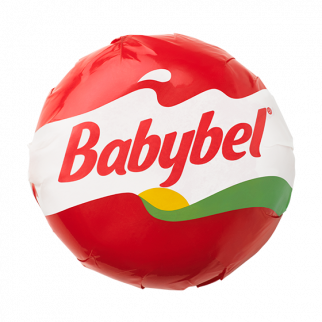
Credit: babybel.com
Credit: www.reddit.com
Frequently Asked Questions
What Animal Does Babybel Cheese Come From?
Babybel cheese comes from cows. It is real cheese made from pasteurized milk using vegetarian rennet.
Is Babybel Real Cheese Or Processed?
Babybel cheese is real cheese made from pasteurized milk, using vegetarian rennet, making it a vegetarian-friendly option.
What Kind Of Cheese Is Used In Babybel?
Babybel cheese is made from pasteurized milk and is essentially a tiny version of Edam cheese. Edam cheese is semi-hard with gentle notes of sweet grassiness and mild nuttiness. Babybel cheese has a tangy and tart flavor and is made using vegetarian rennet.
Can You Eat The Red Wax On Babybel Cheese?
Yes, you can eat the red wax on Babybel cheese. The wax is made of a blend of paraffin and microcrystalline waxes and is “food safe. ” It poses no health risk if accidentally ingested. Babybel cheese is made from pasteurized milk using traditional processes.
Where Is Babybel Cheese Produced?
Babybel Cheese is produced in Austin, Texas, United States.
Conclusion
To conclude, Babybel cheese is made in the USA, specifically in Austin, Texas, by the Bel Brands Cheese USA company. It is a real cheese made from pasteurized milk using traditional Edam-making processes. Babybel is known for its unique red wax coating, which is food safe and poses no health risk if accidentally ingested.
The cheese comes from cow’s milk and is available in various flavors. So next time you enjoy a Babybel, you can appreciate the craftsmanship and care that goes into making this delicious snack.




